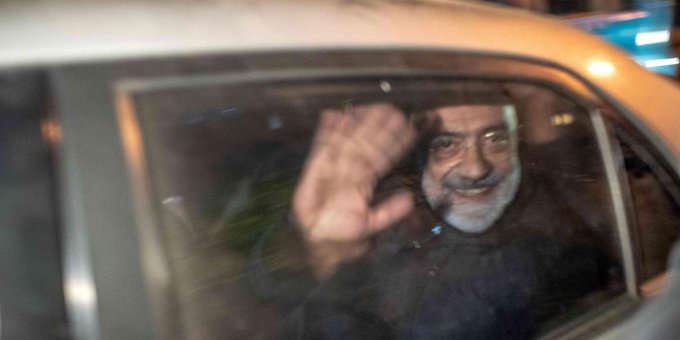Ahval, April 14 2021
Ahmet Altan, a Turkish journalist sentenced to prison in the aftermath of the failed coup in 2016, had his conviction overturned by Turkey’s Court of Cessations.
On Wednesday, the 16th Penal Chamber of the Court of Cassation has reversed the previous sentences against Altan and journalist Nazlı Ilıcak on the grounds that the sentence reduction foreseen in the Article 220/7 of the Turkish Penal Code (TCK) was not implemented. He has just been released by the court and has left the prison.
« My client is being DISCHARGED, » Altan’s lawyer Figen Albuga Çalıkuşu wrote on Twitter after the decision. She added that universal laws and values are « infallible, but legal bullying is recorded. »
Altan is a well known novelist and journalist who worked for several well-known Turkish outlets including Miliyet and Hürriyet. His writings on subjects that include the Armenian Genocide (Turkey does not acknowledge it as such) and Kurdish right often attracted the ire of far-right Turkish factions.
Following the failed coup against President Recep Tayyip Erdogan in July 2016 that was orchestrated by those tied to the movement of exiled cleric Fethullah Gulen, Altan was arrested on charges of « sending subliminal messages » that encouraged the coup. He was accused of knowingly aiding its execution and was sentenced in February 2018 to life imprisonment.
The next year, the Court of Cessations ruled that Altan should not stand trial for involvement with the coup but instead on terrorism charges. On November 4, 2019, an Istanbul court ruled for his release considering the time he served in prison after being sentenced to a decade in prison. However, less than a month later he was remanded into custody and returned to prison only nine days later.
A day before the court’s decision to release Altan, the European Court of Human Rights (ECHR) in Strausborg ruled that Turkish authorities violated his right to freedom and liberty.
« “The Court found that the applicant’s criticisms of the President’s political approach could not be seen as an indication that he had prior knowledge of the attempted coup,” the court said in its own ruling.

